- Home
- Peter Grainger
In This Bright Future: A DC Smith Investigation
In This Bright Future: A DC Smith Investigation Read online
IN THIS BRIGHT FUTURE
A D C SMITH INVESTIGATION
Peter Grainger
Two weeks of rest and recuperation – that’s what the doctor ordered. Detective Sergeant DC Smith could listen to some music, make some of his own and maybe even catch up on his reading; he is almost looking forward to it. And then there is a knock on the door. It’s only his next-door neighbour but it is the beginning of a sequence of events that will bring him face to face with some of the darkest episodes and the most dangerous people from his own past. This is Smith’s fifth investigation but this time it’s personal.
For Matthew
Beta reader, cover consultant and kindest of critics
Chapter One
It was just a house in a street in a town, and everything about it was ordinary. A semi, well cared-for, the front garden on a slight slope small but regularly attended to, with the low shrubs pruned and the green stalks of spring bulbs that had bloomed trimmed down to within an inch or two, barely visible unless you walked by slowly and looked, as he had done. The shingle on the drive was evenly spread as if it had been recently raked over, and there were no weeds in it. Parked on the drive was an ageing Peugeot saloon, but again it looked as if it was sound enough, it wasn’t a wreck at all. Up at the windows there were net curtains, old-fashioned surely these days but he didn’t know that for certain, not the kind of thing that bothered him much. What bothered him was that there had been no sign of life at the place for two days.
On the second afternoon, after a day and a half of doing little more than sitting and staring at the ordinary street and its ordinary houses, he had got out and left the car. There was clearly no-one at home and so the risk was small enough; leaving the car there empty might even be a clever dodge – it might look as if it really did belong to someone nearby. He walked around for half an hour, getting a sense of the area, and his course naturally enough took him to where the back of the property would be but there was no access to it. He stood on the footpath and selected ‘Allow present location’ on the phone. The satellite view, opened to the maximum, seemed to confirm that there was no way of viewing the house from the rear, and he wondered then whether the man that he was looking for had taken that into account before he bought the place. It was possible.
When it began to rain again, he went back to the car and drove away. In a supermarket he bought some sandwiches and ate them in the car park, watching the girls who worked there in the evening coming out on their breaks in twos and threes, standing under the projecting roof, smoking and talking, always talking, the girls, as they did back home, as they do the world over. A couple of them noticed him, said something and then the others began to glance in his direction. One of them smiled at him, brazen, and he thought then about Mairead. When she asked, he had answered ‘Just a bit of family business, won’t be more than a couple of days’ and then he remembered too late that he had said to the family that he would be working over there, that it was a contract consultation which had happened before once or twice. A stupid mistake or a Freudian slip? It made no difference; Mairead had got friendly through Facebook with his sister in Edinburgh and it was only a matter of time before one of them said something about his absence – the longer he stayed away, the more likely that was.
The girls went back inside and the rain continued, bringing an early end to the day, even though it was June. As the light faded, so did the sense of expectation that had kept him going over the couple of weeks that he had planned this – now he felt only a sense of irritation and stupidity. On the one hand, it had not been a complete waste of time; using the landline in the drab little boarding house, he had phoned the station and asked to speak to the man, and they had told him that he was not available at present, could someone else help him? They might have said there is no such person here but they had not, and that told him something. On the other hand, could he not have done that from home? Yet if the result of the call had been the same, confirming that there was indeed such a man, he would still have had to come, wouldn’t he?
And stupidity because… Because if he had found him, what then? He had the list of questions all written out, of course, in a logical order that had been thought about for hours, but here and now, in the wet supermarket car park, even that seemed a little childish.
He had done it though – he had found him, he was certain of that, disappointing though the man might be if his dull house and his dull car were anything to go by. And then a mean thought came to him; even if his own search, the personal business, came to nothing, he knew that there were still people back home who would like to know the whereabouts of this man. They were not people that he knew well, but he knew their names. Everyone back home knew their names, even after all these years.
He got out of the car and took the food wrappers to the nearest bin. It was a warm, dense, fine rain and he stood for a moment looking up into the soft blackness of a starless sky, allowing it to fall upon his face. So much for your English summer. This was as wet a night as any in Ireland.
After that, he had taken the decision that he would go home tomorrow if there was no sign of anyone at the house. The man might be on holiday for a fortnight or more, there was no telling, and no way of finding out that he could see. And then, because he did not want to return to that pokey little room yet, he took the hire car back across the town again, making a long detour to drive once more along the road that he had come to know too well, glancing to his left, not even slowing down, and there was a light on downstairs. He fought the impulse to brake suddenly, continued down to a junction and eased his way slowly back up the road until he could pull in to the left some fifty or sixty yards from the house.
He had been here until ten thirty last night and there had been no light. If someone had a left a light on just for security, as they do, he would have seen it last night, unless it was on a timer that switched on after ten thirty. It was a possibility. No other car in the drive and no different car parked outside. He looked again at the lighted window and realised that the top vent was open, and it had not been earlier in the day – he had looked for that very thing at all the windows on the front of the house. Someone was home. That was all he could conclude because there was probably a wife and there might even still be children, reminding himself again how little he knew about the man. But someone was home, someone had come home, and his earlier irritation was forgotten.
There was no question of knocking on the door at this time of night. It wasn’t a question of manners, though – he wanted to see him first, have the advantage of him in that way, wanted to be the one who chose the moment. If he could see the man first, he would have a clearer idea of exactly what he was dealing with when he chose to deal with it. Perhaps not at the house at all, maybe on the street, in the open, where there would be witnesses and no places to hide, no door to be slammed in his face.
At twenty minutes past eleven, with the rain ceasing, the right side upstairs light came on, and seconds afterwards the downstairs one was switched off. A shadow moved once over the nets before the heavier curtains were pulled across, the shadow of the man that he had come a long way to find – he had no doubt in his mind now. He waited on another three or four minutes until that light too disappeared, and then he thought about him up there in the dark room. Did he sleep well? Was he ever troubled by his conscience? Had he really done the things that people said he had done?
At eleven thirty he started the car and drove back to the boarding house. When sleep wouldn’t come, he got up, took the list out of the folder and read the questions over. The list was typed and bullet-pointed. With a pencil he made a couple
of notes in the margin, put the papers back in order and then placed the papers back into the folder. He thought about the house again and then he went to the window and opened the top vent a little. The rain had made the air wet, and it was difficult to get a decent breath. Back in the bed, he opened his phone and saw in front of the picture of Mairead that the sun would rise tomorrow at 04.47. No need to set an alarm, though. He had always been an early riser. He would be up, right enough.
The neighbours, the people who occupied the other half of the semi, were an elderly couple. He had seen them three times over the previous two days, once coming out of the house together, walking past his car and then a long way down the road to wait at a bus stop, even though there was a new-looking VW hatchback standing on their drive. Now, at a little after eight o’clock in the morning, the chap had come out again but this time he had gone around to his neighbour’s front door and knocked on it. The angle was not good but if the man he had come to find stepped out, he would have his first sight of him – it was an oddly tense moment but it came to nothing. The elderly chap was talking to whoever was inside, laughing at something and then they shook hands – why would they do that if they lived next door to each other? Then the old boy stepped forward into the house and the door closed behind him.
Opening his phone, he flicked across to the notes screen where he had begun keeping a record of his observations, and wondered whether to add this event to it. It was what people did in these situations according to the films and the television but he had written nothing since midday yesterday. He closed the phone and resumed his watch.
The road was grey and damp after the rain. True, the sky was brighter today but still the clouds had not broken enough for the sun to get through. The air was still, and still humid. He opened the window and the sound of pigeons came in; there were trees at regular intervals along the road, lime trees in blossom, and by the sound of it every one had its resident pigeon cooing away. It was actually a decent enough area, this end of the road, reminding him of the better parts of Glencolin, where he came from himself – and that thought brought into sharper focus his feelings about what he was doing here and how much longer he was going to do it. Three days now, and he had told them it would be a couple. So far he had had only texts but Mairead would ring him today to see what the hold-up was, and that meant he would have to lie to her, something that he almost never did.
The old man reappeared after what, ten minutes? Still no clear view of the other one, just a hand put up to say goodbye, the door remaining tantalisingly open for a few seconds. He could do it now after all, just cross the road, tap on that door, ask the question and say the name – say the name and see the man’s face when he heard that accent maybe, see if there was a little fear. Maybe a lot of it. Maybe he would panic, try and shut the door in his face, call the police even. God knows how this will end, come to think of it.
The front door closed. He continued his study of the house. All the curtains which had been closed last night were now open – another early riser by the look of it. The car had not moved, so he’d not been out and about in the few hours he had not been watched. Was he working? The station had said he was not available but that could mean anything, of course. More irritation. Some people did this sort of thing for a living but he had no idea how, not now that he had tried it himself.
He reached down into the passenger’s foot-well for one of the plastic bottles of water, snapped the top open and tilted back his head to take a long pull, but not too long or he’d need to drive down to the public conveniences, and that was not somewhere he wanted to go again. And then, suddenly, his man was there.
Outside at last, and making for the car but awkwardly, slowly, because he was walking with a stick. No, not a stick, one of those chrome and plastic crutches that a hospital gives you with the sprung clip that grips the arm below the elbow. Limping on the right leg as if he had only just injured it and hadn’t got used to the idea yet. The limping and the stick made him look older than the fifty something that he must be.
Not a big man either. There had been no description of him back home, just the name, or, to be more correct, the names, and obviously he could not ask his mother about all that – if he had done so, he would not be sitting here now. But this had to be him, opening the Peugeot’s door and reaching inside for something. What he came out with, after leaning in with some difficulty, the crutch getting in the way, looked like the plastic wallet that occupies too much space in the glove compartment, the one that seems so full of promises and reassurances when the car is new. Then the man straightened himself and looked up and down the road as if he had not seen it for a while. The gaze travelled over the silver Escort but at this distance he would not be able to make out the features of anyone inside it, and anyway there was no sign that he had even noticed it among all the other vehicles parked along the sides of the wide road. Then he turned and hobbled back into the house, the little black wallet tucked under his right arm.
And is that him?
The sense of disappointment was surprising, and he questioned it for several minutes – he had the time as it was pretty clear that this chap wasn’t going anywhere in a hurry today. What had he been expecting? Someone who looked a little tougher, maybe, a little more dangerous, or even just a little bigger. Not a man who seemed to be nothing more than one of those anonymous office types down at Molloys, the ones who could not grasp even the basics of the new accounting system he had spent three months developing for them. Could a man like this one ever have done the things that others had claimed? Could a man like this have done such damage to the O’Neills, and broken his mother’s heart? The conviction grew suddenly that he had made a mistake after all, a terrible mistake, and he thanked God that he had not gone over there and hammered on the door that first afternoon.
He dwelt on it all for a long time as he was inclined to do, for perhaps half an hour, glancing up occasionally at the house but seeing nothing more. Then he opened his phone again and began to look at the times of the Stena Line ferries from Liverpool back to Belfast.
Some of the houses on the town-ward side of the road were older than those on the right, the ones he had been watching, and some of them had high brick walls, shutting themselves off from the new developments of the 1950s and 60s. The wall that he had parked near, a good eight or nine feet high, had a spilling of some sort of creeper coming over the top of it, creating a patch of dry shadow on the pavement. As he scrolled down the ferry timetable with his fingertip, he finally became aware that there was someone standing in that shadow, no more than four or five feet from his car. He had enough composure not to look directly straight away; he continued to stare down at the phone in his left hand and scroll through it with the index finger of his right – but there was no mistake, someone was there.
A car hissed by on the wet road. After another twenty seconds or so, barely moving his head, he glanced sidelong across through the passenger window, and he could see the lower half of a man dressed in casual grey trousers, and, by the left leg, a shiny stick of chrome.
He had closed the phone slowly and placed it into the slot on the dashboard below the radio. Still the man had not moved but he would be able to see everything that was happening inside the car, that was obvious, and so there was no point in pretending any more. Leaning across to his left, now seeing up to the man’s shoulders, he levered the handle towards him and then pushed, opening the door a few inches.
The rubber foot of the crutch came up and rested against the door, preventing him from moving it any further. He ducked down then and found himself looking up into a face that was smiling, even though the head that owned the face was shaking slowly from side to side, as if to say, no you don’t. Then, with his right hand, the man pointed to the passenger window and made the circular motion that means wind it down.
The ignition lights came on as he turned the key to the first position, and then the window slid down – it seemed to make an absurd amount of noise doing
so. Leaning forward once more and looking up to the left, he could see the man’s face again, and the man had ducked his own head a little so that they were more or less eye to eye. Blue eyes, having a good look around inside the car before returning to the driver’s, and still the smile, which appeared to be genuine enough, as if the driver had only stopped to ask directions from a friendly local – that’s exactly how it would look from across the road.
‘Right then. I suppose I should start by saying welcome to England.’
He could not keep the surprise out of his face, and the smile disappeared momentarily. The man was reaching into the pocket of a waterproof jacket as he spoke again, using his right hand, the left still holding onto the crutch which had returned to the pavement.
‘Oh, I’m sorry if we’re at cross purposes, sir. My mistake. We ought to start with making sure that we know to whom we’re speaking. It is Mr Kelly, isn’t it?’
The surprise was now something closer to shock. What was going on here? Now the man was opening a little black notebook – that was what he had taken out of the jacket pocket.
‘Mr Diarmuid Kelly of west Belfast? Arrived in the country on the 18th, assuming that you hired the car on the same day that you disembarked. I have to say, sir, that if you are sight-seeing, you’re not making much of a job of it. There’s much more to England than this rather nondescript road. Kings Lake isn’t particularly scenic either, though it does have an interesting maritime history. Are you interested in history, Mr Kelly?’
The notebook was not the only thing he had taken out of the pocket. Now it had been replaced by an identity badge in a well-worn, black leather wallet, and the badge was being held close to the open window so that the occupant had plenty of opportunity to read it.
‘Let’s complete the introductions, then. I am Detective Sergeant David Smith of Kings Lake Central police, and now it’s time for you to step out of the car, keeping your hands where I can see them.’

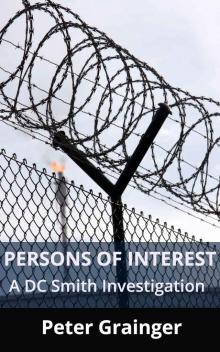 Persons of Interest
Persons of Interest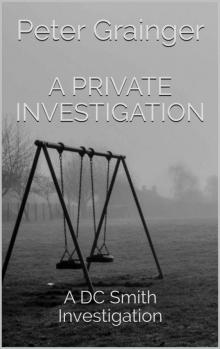 A Private Investigation
A Private Investigation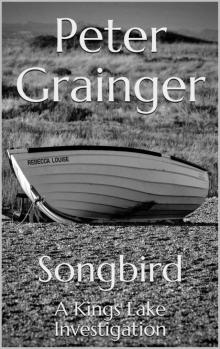 Songbird
Songbird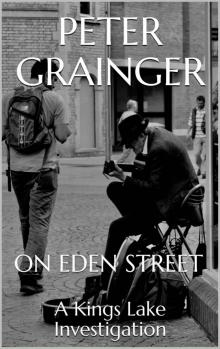 On Eden Street
On Eden Street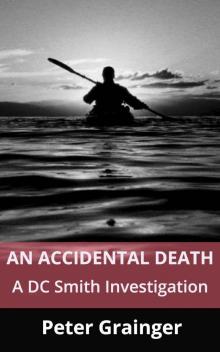 An Accidental Death
An Accidental Death Time and Tide
Time and Tide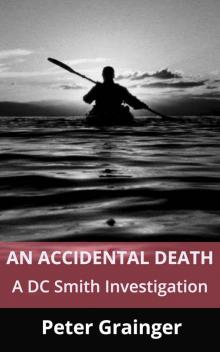 An Accidental Death: A DC Smith Investigation
An Accidental Death: A DC Smith Investigation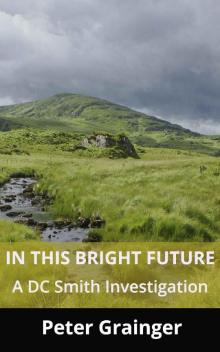 In This Bright Future
In This Bright Future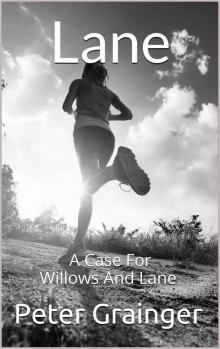 Lane: A Case For Willows And Lane
Lane: A Case For Willows And Lane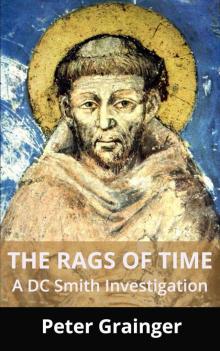 The Rags of Time: A DC Smith Investigation
The Rags of Time: A DC Smith Investigation Luck and Judgement
Luck and Judgement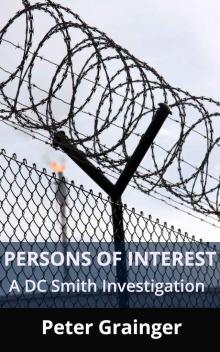 Persons of Interest: A DC Smith Investigation
Persons of Interest: A DC Smith Investigation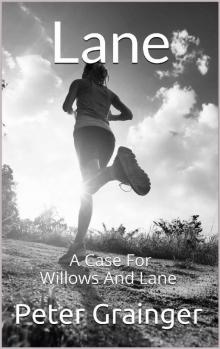 Lane
Lane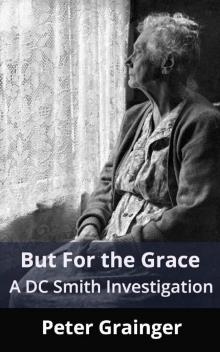 But For The Grace
But For The Grace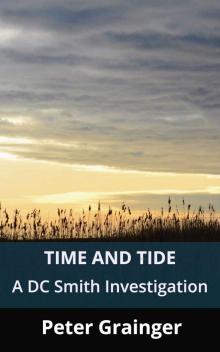 Time and Tide: A DC Smith Investigation
Time and Tide: A DC Smith Investigation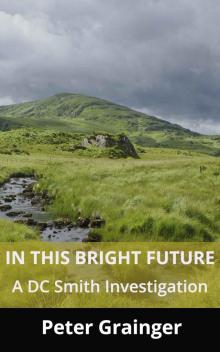 In This Bright Future: A DC Smith Investigation
In This Bright Future: A DC Smith Investigation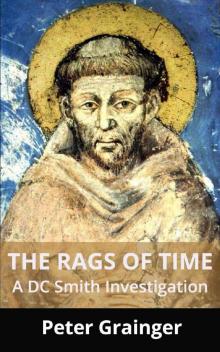 The Rags of Time
The Rags of Time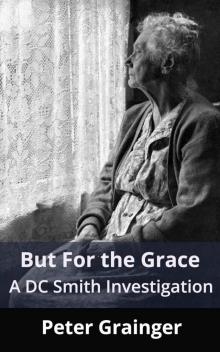 But For The Grace: A DC Smith Investigation
But For The Grace: A DC Smith Investigation Luck and Judgement: A DC Smith Investigation
Luck and Judgement: A DC Smith Investigation